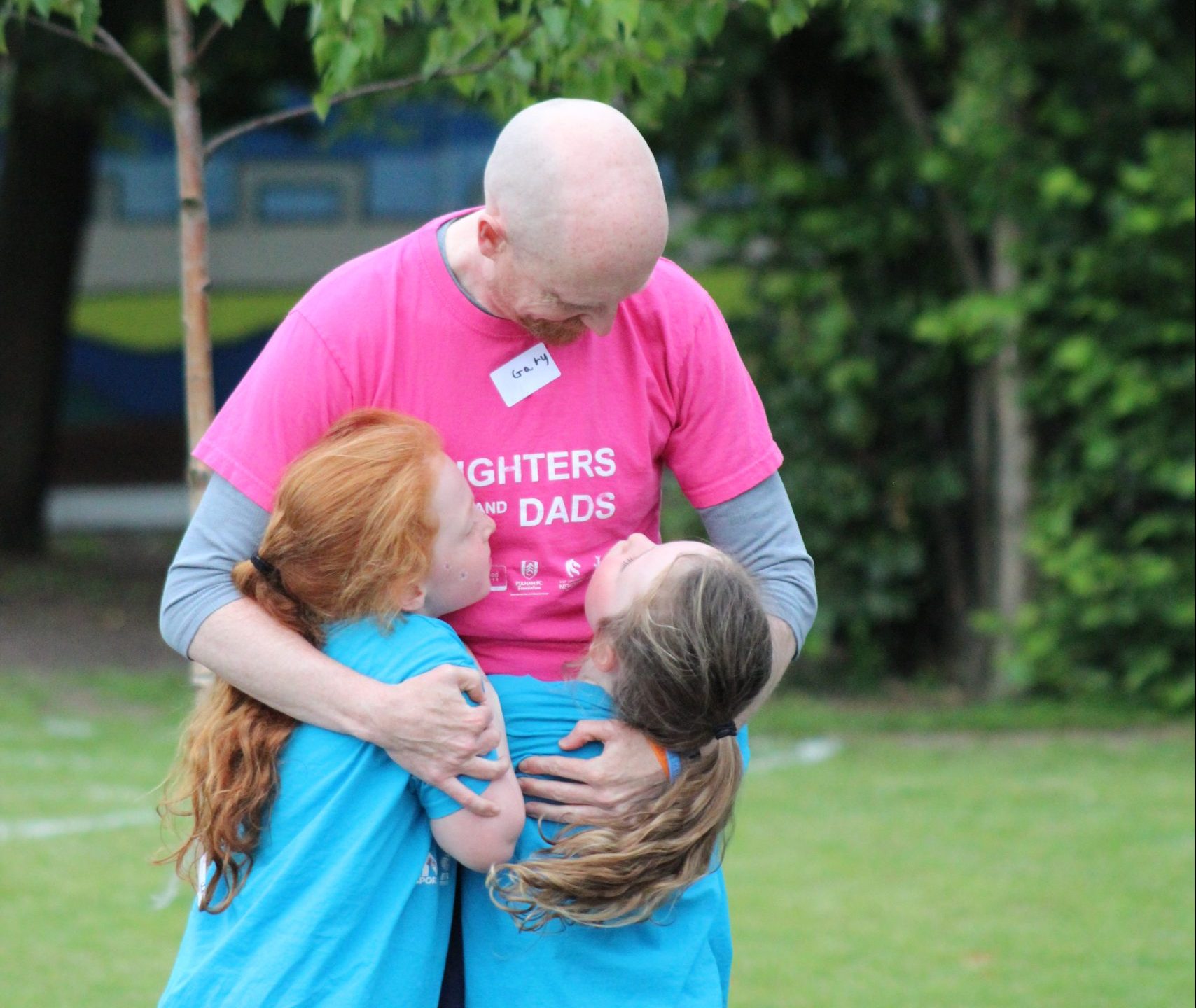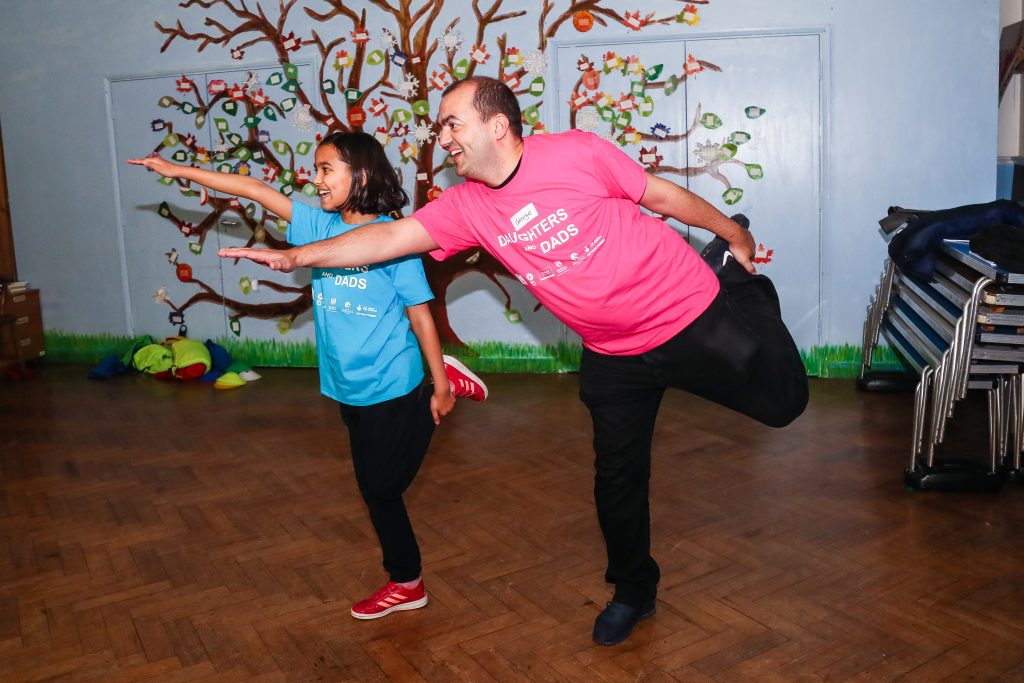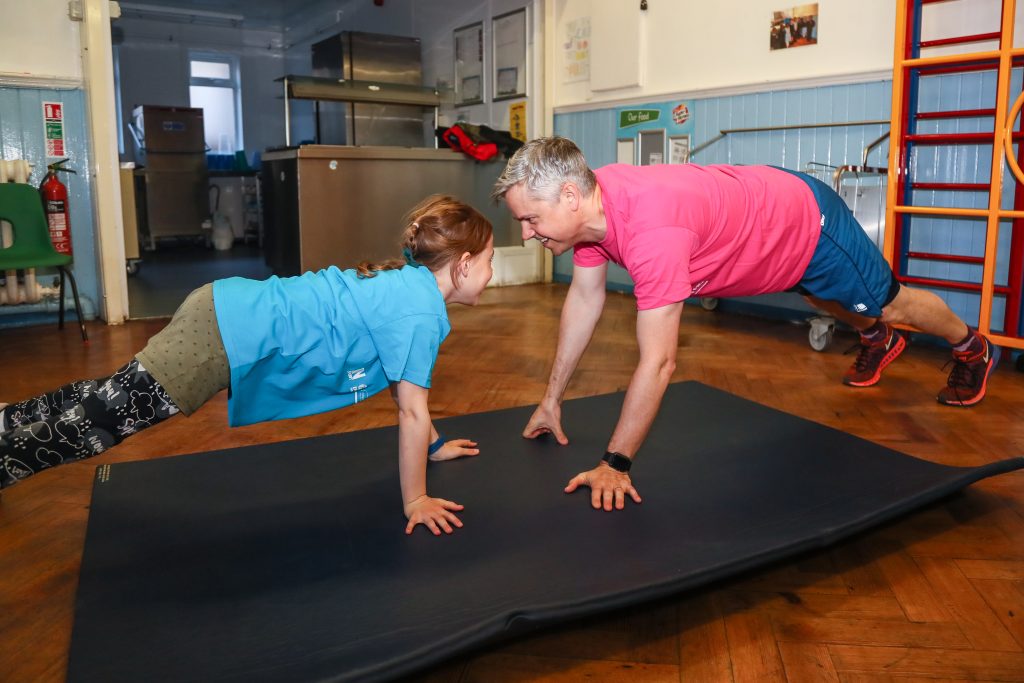 Lee Warren, Project Manager at Women in Sport reflects on his time delivering the Daughters and Dads programme, its impact, and how it could help to build a generation of male allies.
Lee Warren, Project Manager at Women in Sport reflects on his time delivering the Daughters and Dads programme, its impact, and how it could help to build a generation of male allies.
The formative years of your life, and the experiences you have, help to build attitudes, perceptions and behaviours that will live with you for a lifetime. Parents are significant influences in young people’s lives, and it’s vital they understand their role in creating positive lifelong experiences and memories through sport and exercise for their children.
Girls don’t grow up hating sport, it’s the wider influences across society that often tells girls that sport isn’t for them. The continual reinforcement that they aren’t good enough, sport is for boys or the constant messaging that girls should be valued on their appearance. Why do we let this be the norm? Why can’t girls be defined by how they use their body rather than how it looks? Why can’t girls be valued for being strong and determined? These unhealthy and constraining values that have been placed on girls drive negative beliefs and perceptions about possibilities.
That’s why I was delighted to lead the Daughters and Dads Active and Empowered (DADs) programme at Women in Sport to break down these outdated gender norms and expectations. Through educating and empowering the influencers in girls’ lives as well as inspiring girls themselves, we can create a society of opportunity, in which all girls can fulfil their ambitions and potential. I believe DADs has started to achieve this.
Empowering girls and their families
The impact of the 11-week programme we ran on the participants and their families was clearly significant and positive, especially as they navigated their way through a pandemic along with the restrictions which severely disrupted their lives.
Many families spoke of carving out time and finding more opportunities to participate in physical activity after the programme. By reframing perceptions of sport and exercise through fun and empowering techniques it highlighted the wide-ranging benefits and enjoyable activities.
Getting father active with their daughters, rather than as supporters on the side lines, provided an opportunity for father and daughter to bond through shared experiences. Less structured, and more informal, regular bursts of activity and play helped to encourage an enjoyment of spending time together. Daughters spoke about the quality of their interaction with their father, whilst dads valued the opportunity to get to know their daughters better.
Many fathers acknowledged the role the programme played in preparing them with the knowledge, skills and confidence they needed to transform their daughters experiences of sport, and be a better role model for their daughters. The girls developed in confidence and resilience and established a more positive and adventurous relationship with activity, while their dads found new ways to support their daughter in the world of sport and beyond.
Fathers who participated in the programme, valued it’s ability to highlight deep rooted gender stereotypes and raise gender equity for them and their daughters. Many fathers considered themselves to be aware of the many barriers their daughters faced because of their gender. But bringing the issues to conscious awareness prompted fathers to reflect on their attitudes and behaviours and identified subconscious stereotypes that they held that were restricting their beliefs on what their daughters could do and what they could do with their daughters.
A Collective Approach
Most importantly, we need a collective and collaborative approach to breakdown the entrenched barriers young girls face to living healthy, happy and active lives. Gender stereotypes aren’t a problem girls and women can solve alone, men and boys need to stand up and be allies for change.
We need to create space for women and girls, call out limiting language and behaviour and provide a supportive and inclusive environment. This starts with education; understanding what life looks like through a gendered lens by listening to the lived experiences of women and girls. Together we can create an equal and equitable society.
How to engage your daughter in activity
1. Prioritise one-to-one time with your daughter.
2. Build new experiences and where you can adventure into your engagements that enable you to connect emotionally.
3. Don’t restrict the activities you do with your daughter and the experiences you give her. Evoke excitement and challenge to build confidence and resilience in ability, through games and play.
4. Question your subconscious assumptions so you are not held back by stereotypes about what girls (and boys) should and shouldn’t do.


 Lee Warren, Project Manager at Women in Sport reflects on his time delivering the
Lee Warren, Project Manager at Women in Sport reflects on his time delivering the 
